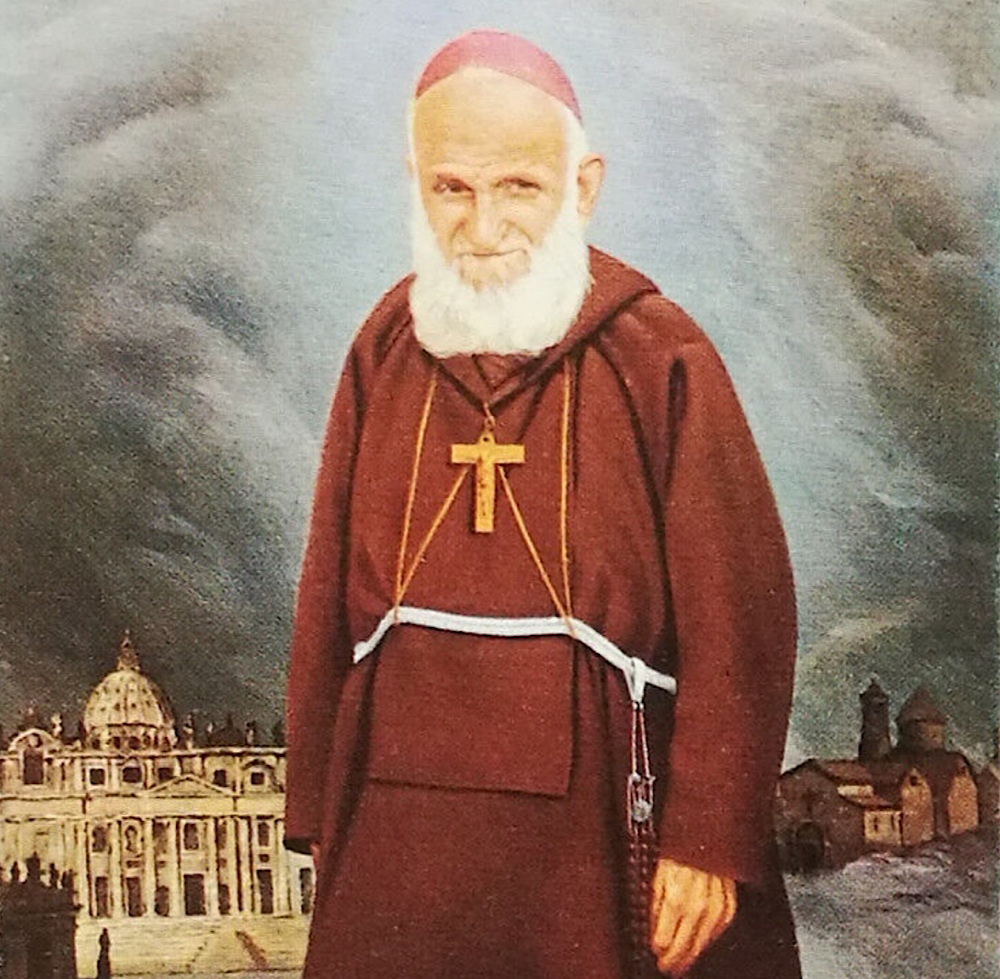Vicar of Anatolia: Mgr Zohrabian venerable, 'current witness in persecutions'
Pope Francis promulgated the decree recognising the heroic virtues of the Turkish bishop. For Bishop Bizzeti occasion of joy as "recognition" of the history of a people. His family exterminated during the First World War, but his story "goes beyond the Armenian genocide". Even today those who bear witness to the Gospel encounter 'difficulties, resistance'. After 14 years in February, the Turkish bishops visit the pope for an ad limina visit.
Rome (AsiaNews) - "His testimony is still relevant today, his figure is an inspiration, because in this historical period similar events and conditions are being repeated" to those of the era in which Msgr. lived. Cyril John Zohrabian lived, according to Msgr. Paolo Bizzeti.
The vicar of Anatolia, sharing his reaction to the recognition of the heroic virtues of the bishop of Turkish origin authorized by Pope Francis on 24 January with AsiaNews, speaks of how even today "those who want to live following the values of the Gospel encounter difficulties, resistance and persecution. And this - he warns - should make us reflect, because if witnessing charity" becomes a source of attacks and marginalization "it is a bad sign not only for Christians, but for the entire society".
The pontiff's decision "is a source of great joy" for the entire local Church and the faithful, underlines the prelate, because it enhances and recognizes the mission "not only for Turkey, but throughout the Middle East" sanctioning the "heroic value" of his life.
Because even now there is a strong risk "of forgetting the past, the history of priests, religious and lay people who witnessed to the Gospel" even at the risk of their lives or suffering serious persecution. “Remembering personalities like his – he states – also represents an opportunity for young people to bring to mind the events of Christians of the last century” and a recent history in which there is no shortage of painful and controversial episodes.
The servant of God Cyril John Zohrabian, of the Order of Capuchin Friars Minor and bishop of Acilisene (in Turkey), was most likely born on 25 June 1881 in Erzerum, into a poor family with a profound Christian tradition. In 1894 he entered the order at the convent of Istanbul and, having completed the year of novitiate, he made his temporary profession on 14 July 1899 and his solemn profession three years later, on 14 July 1902.
Destined for the mission of Trebizond, the future bishop he dedicated himself to pastoral and spiritual ministry, teaching, visiting the sick and visiting the numerous villages in the area. At the outbreak of the First World War he is stuck in Istanbul and cannot return to the mission, while his family is exterminated in the context of the Armenian genocide.
Once the great war was over, he took care of the hundreds of orphaned Armenian girls and, in 1920 in Trebizond, he opened the doors of the church and convent to the Pontic Greeks expelled from their land. For this he was driven out of the city and arrested upon arrival in Istanbul in March 1923.
Subjected to three days of torture, he was sentenced to death on false charges, but was released at the last minute and took refuge in Greece, after being expelled from his country. . Even on Hellenic land he takes care of Armenian refugees, building churches and schools.
On 21 November 1938 he was appointed patriarchal vicar of Alta Gezira, in Syria and, on 8 June 1940, titular bishop of Acilisene, receiving episcopal ordination in Beirut on the following 27 October.
However, his dedication to others and his generous mission earned him the ostracism of the Greek government, which first monitored him and then kicked him out. Finally he heads to Syria, where he carries out intense pastoral and welfare work, building schools, churches and houses for priests and giving private lessons to numerous students.
Health problems, also linked to the torture he suffered, pushed him to resign from the bishopric on 12 June 1953 and settle in Rome, where he personally took part in the work of the Second Vatican Council and where he died on 20 September 1972, after spending his last years at the Roman convent “San Fedele”.
To understand and enhance the figure of the bishop, explains Msgr. Bizzeti, “we must not stop at the massacre of the Armenians. Because he was persecuted wherever he went "from Turkey to Greece, demonstrating that" men who practice the Gospel, following in the footsteps of the apostles, are always uncomfortable ".
“Thousands of people - he continues - have benefited from his work, but there seems to be a lot of intolerance towards those who work for good and this is particularly current. Even today we see people who try hard to help the poor and needy, but end up being attacked or accused."
The Christian community welcomed the news with joy, because "through a person and his testimony" there is "recognition" of the history of a people: "At the beginning of the 20th century - recalls the apostolic vicar - 20% of the population in Turkey was Christian, while today we are at less than 0.1%", but in this land "Christianity has been present for 20 centuries and before other religions".
Finally, Msgr. Bizzeti underlines how "after 14 years" in early February, coinciding with the first anniversary of the devastating earthquake in Turkey and Syria, the country's bishops "will be received by the Pope for the ad limina visit. It will be a very significant moment."







.png)










